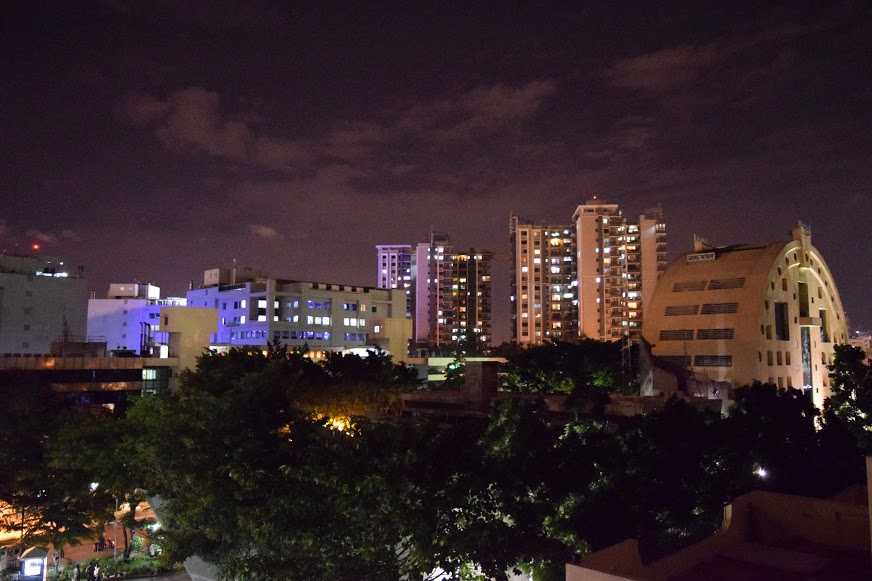Bog Standard
Purple Legacy
March 25, 2017 • ☕️ 2 min read
An insignificant ferrous sphere covered in dirt and water being heaved and yawed around in an ocean of awe-inspiring titanic balls of nuclear explosions is the home to the whole of humanity. It should take but just a look heavenwards to realize our humble place in the universe. And yet when I look up, all I see is a plain blanket of dark purple light.
Prehistoric humans left their mark on their surroundings—among other things—as layers of soot on cave walls. Forest fires. Smelting. Agriculture. Technological progress has often only meant finding quicker ways to convert natural resources into items of human consumption with no regard to their byproducts.
Today humans are finally aware of man-made pollutants. And yet, this awareness often stops at air and water pollution. While these two have arguably the biggest effect on human health, I’m worried about a more spiritual loss.
Look up. The stars are gone. Outside of the half a dozen stars we may recognise as such, the brightest of which are actually Saturn and Jupiter, the hundreds upon hundreds of beautiful twinkling heavenly bodies are drowned out by the visual noise of headlights, streetlamps, and offices filled with people too busy to care. Streetlamps are the tentacles of development reaching out into the wilderness. This is the legacy we are leaving the future generations.
The sky is like a huge painting with its beauty only limited by our vision. And it is ever so dynamic. I used to lie on the terrace on some cool cloudless nights staring at the moon and the stars. You could see the movement even in a few minutes. It would be a completely fresh painting every time and yet you could never catch it changing. Even the most distant stars look clearer than the clearest screen we produce. I’m mesmerized by the sky every time I go to my native village.
I’m convinced that there are kids who will grow up without ever having seen more than a handful of stars. I wonder if they will still draw the dozens of white pentagrams on their adorable oil paintings like we used to. Maybe two or three. Or maybe they still would as a vestige of our experiences.
In 1994, after the Northridge earthquake when Los Angeles had a massive power outage, the local observatories were inundated with calls about the “weird-looking” night sky from concerned citizens. Turns out that this was the first time many of them had seen the Milky Way.
I consider myself fortunate to have grown up in a place (and in a time) where it was possible to gaze up at the stars. I wish more would share my fortune. It is regrettable the that city-folk have lost an experience so wonderful without ever realising it.
But we can do something about it. Drive to the country a few times a year. If you have a kid take him or her with you to see the stars. Appreciate the view. Participate in initiatives like the Earth hour. Keep the lights off when not in use. Just look up.

Written by Pawan Hegde who loves tinkering with code. If you want to know more about him, maybe you should visit his website